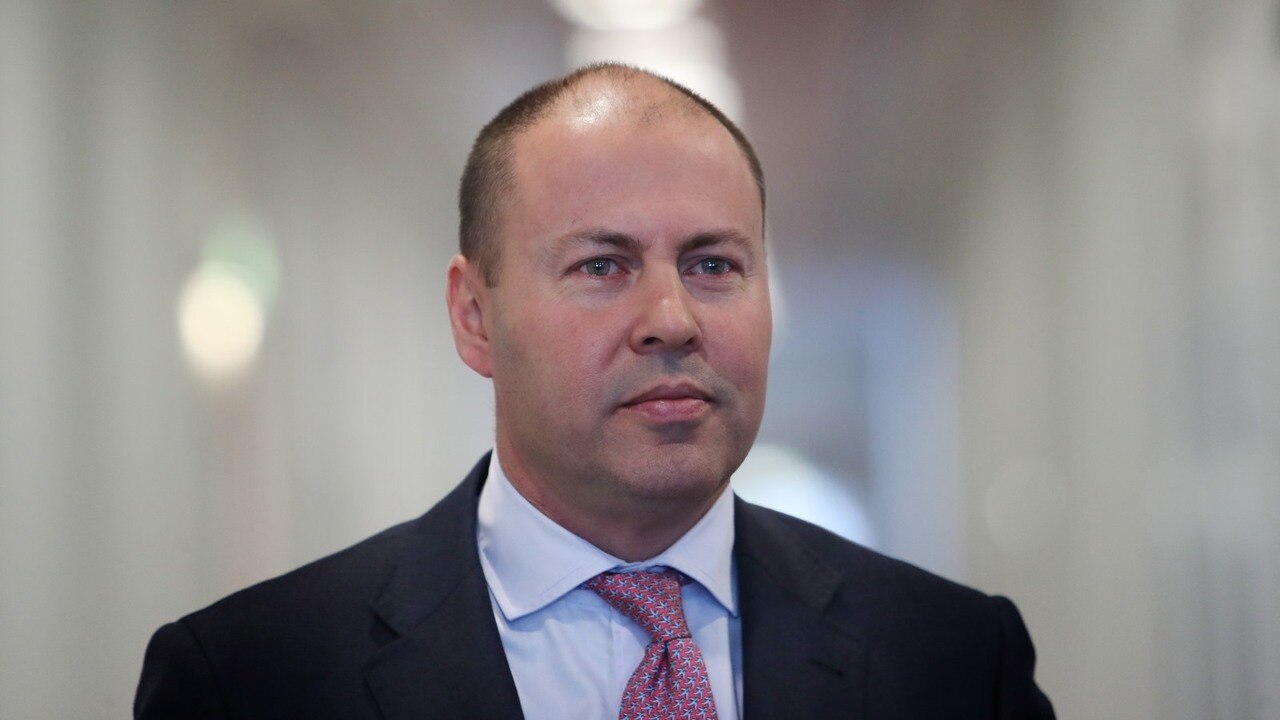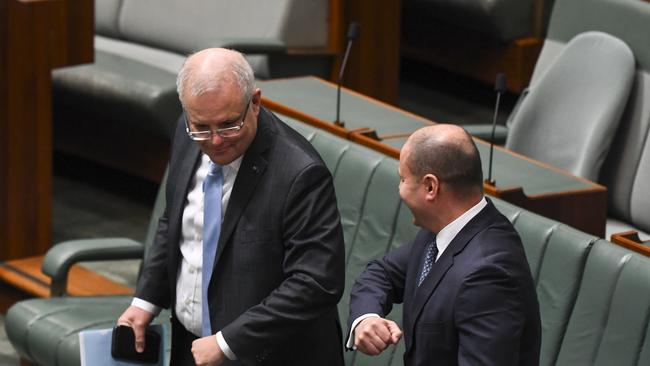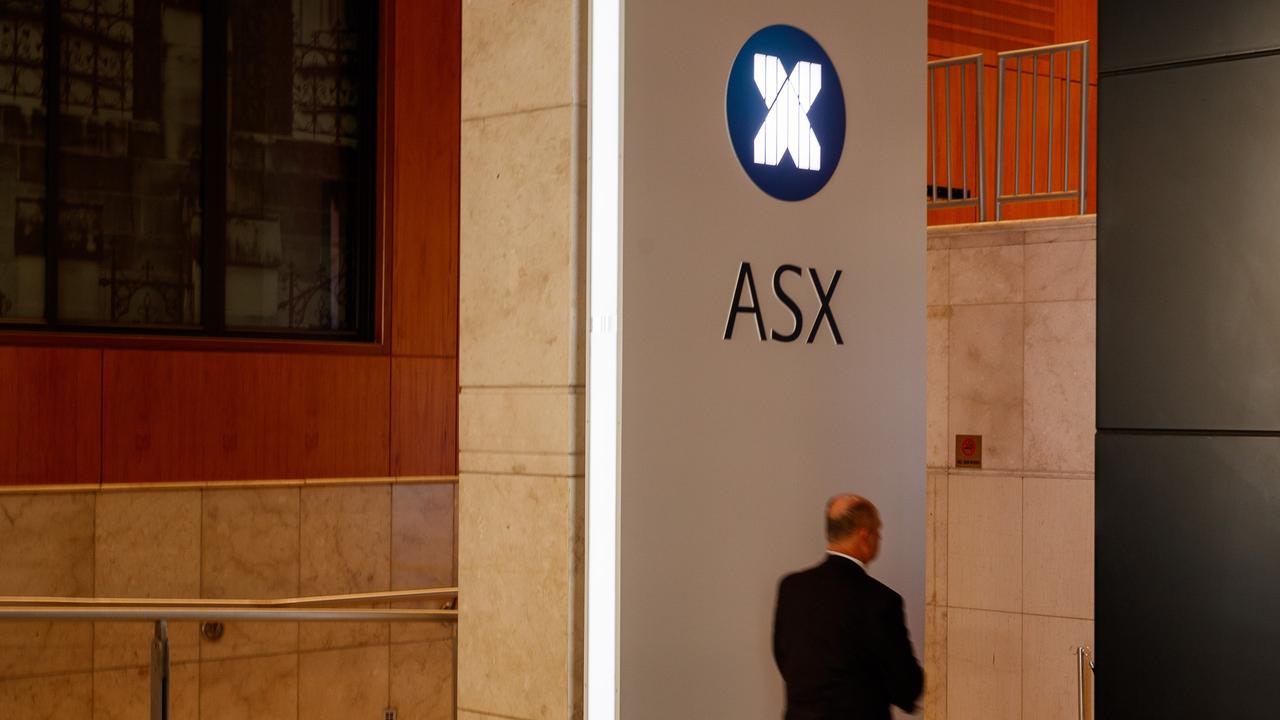The three big mistakes of the coronavirus stimulus

There was a lot of bipartisan elbow-touching and a rare absence of shouting in parliament this week, as the sparse MPs in the House raised the coronavirus stimulus to 10 per cent of GDP. It was a truly historic moment.
But amid the flurry of measures to keep the economy afloat, three mistakes have been made that will dog us for a long time:
• Company directors have been given licence to steal from shareholders through discounted share issues;
• They have also been given licence to steal from creditors by trading while insolvent;
• Super fund members have been invited to steal from their own futures by taking money out of their super funds.
Desperate times call for desperate measures, it’s true, but each of these things was part of the wild scramble of ideas thrown together before the government went the full $130bn bazooka. That’s fair enough, but they could have then been withdrawn, and should have been.
The threshold for share placements in any 12-month period has been temporarily raised from 15 per cent to 25 per cent.

Companies can now also do a two-for-one entitlement offer without shareholder approval when the previous limit was a one-for-one, and can include the entitlement issue stock when calculating the 25 per cent placement limit, which effectively means a company can place 75 per cent of its pre-raising stock with unknown parties, as long as it also does a two-for-one non-renounceable entitlement offer as well.
As a result we are now seeing the beginnings of a deluge of capital raisings that will permanently – not temporarily – dilute retail shareholders, who are locked out of placements and often don’t strongly participate in entitlement offers anyway.
Yes, many listed companies need to raise money, often quickly, but surely any emergencies could be dealt with case by case, without giving open slather to all boards and management to trample over shareholders as they grab for a bag of money.
And there is absolutely no reason the PAITREO (Pro-rata Accelerated Institutional with Tradeable Retail Entitlement Offer) process for raising capital, developed by Merrill Lynch in 2011, can’t be followed in a crisis, giving small shareholders equal, pro-rata access to issue.
That’s because of the A in the acronym, for “accelerated”: the PAITREO structure has a fast institutional component while preserving the fairness of a tradeable retail renounceable component.
ASIC and the government should have mandated PAITREO rather than encouraging the cosy deals between investment banks and institutions that they so love to do and which rob small shareholders.
An even bigger mistake
The changes to insolvency laws are, If anything, an even more egregious mistake.
About a week before announcing the $130bn relief for financially distressed businesses, the government issued a statement headed “Relief for financially distressed businesses” in which, among other things, the penalty for trading while insolvent was completely removed for six months.
Also, companies now have six months instead of 21 days to respond to a creditor’s statutory demand for payment.
The combination of these two things means that, like small shareholders, creditors are now at the mercy of unscrupulous company directors and their lawyers.
The fact sheet about this measure says: “egregious cases of dishonesty and fraud will still be subject to criminal penalties,” but there is zero chance of this being enforced.
ASIC gets thousands of complaints about trading while insolvent every year, even before the coronavirus measures were announced, and only prosecutes a handful of them. Now that directors have been given the green light to incur debts that they know can’t be repaid, it’s going to be overrun with them.
With the government now promising to pay companies $1500 per fortnight to keep employing staff, there is no need to make creditors and small shareholders take the hit instead. Those ideas are now superfluous.
Compounding a mistake
As for the early super withdrawal, that was another attempt by the government to push the responsibility for propping up the economy onto others, before it decided to take on the responsibility itself. And like the others it’s also disproportionately expensive.
Ten thousand dollars this year and another $10,000 next year doesn’t sound like much, but it turns into more than ten times that amount in retirement for young savers: $20,000 compounding at 7.5 per cent for 40 years becomes $300,000. It means a small sum now to help pay the bills comes at a huge long-term cost.
So far only 600,000 of the 15 million super fund members have lodged expressions of interest, but if it turned into a couple of million the early withdrawal could send some funds to the wall.
Richard Denniss of the Australia Institute has come up with an interesting way to deal with any liquidity issues caused by that policy: use the Future Fund’s very large cash reserves, so that instead of selling assets to meet the withdrawals, funds could simply create an account for the Future Fund into which assets would be transferred for a year or two.
The Future Fund doesn’t actually need much liquidity, and it would mean the industry and retail funds wouldn’t have to over-invest in cash at the bottom of the market to prepare for a wave of early withdrawals.
Far better to cancel the early withdrawal idea altogether, although it’s probably too late for that – hopes have been raised, and politicians are rightly wary of dashing hopes that they themselves have raised, especially about money.
These three things, among others, were designed to avoid massively increasing government debt to support the economy, but they have been now been made redundant by the decision to massively increase government debt.
And that’s the way it should have been all along: the government currently borrows at 0.9 per cent for 10 years and just 0.25 per cent for three years, thanks the Reserve Bank’s intervention.
The cost to small shareholders, creditors and super fund members of those earlier decisions will be many, many times greater than that.
Alan Kohler is Editor in Chief of Eureka Report






